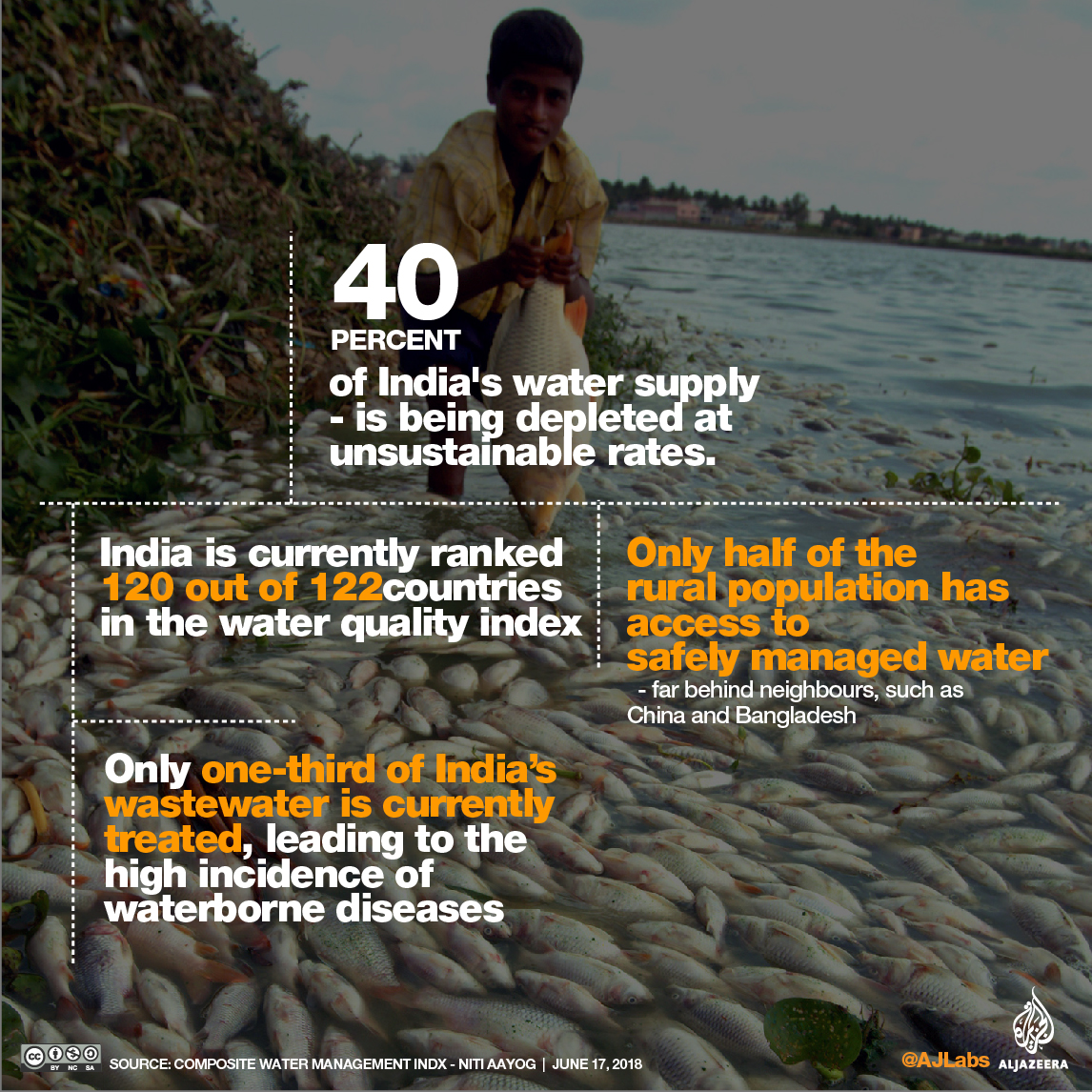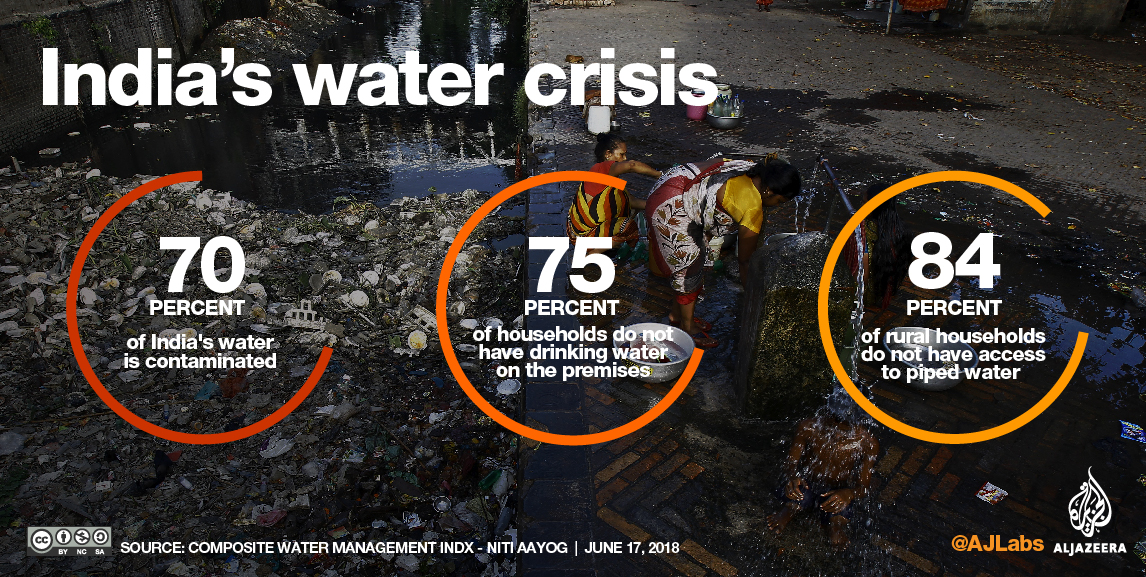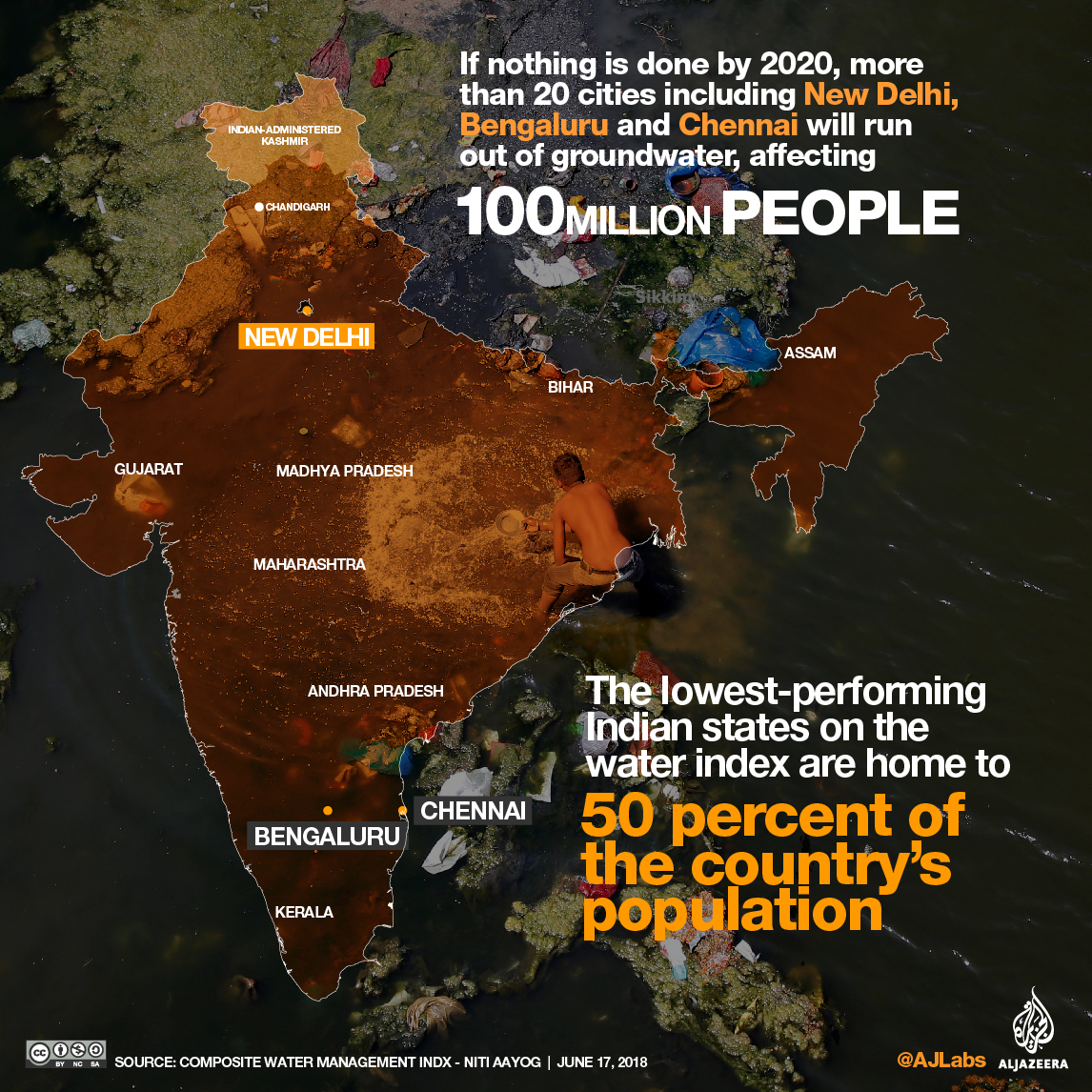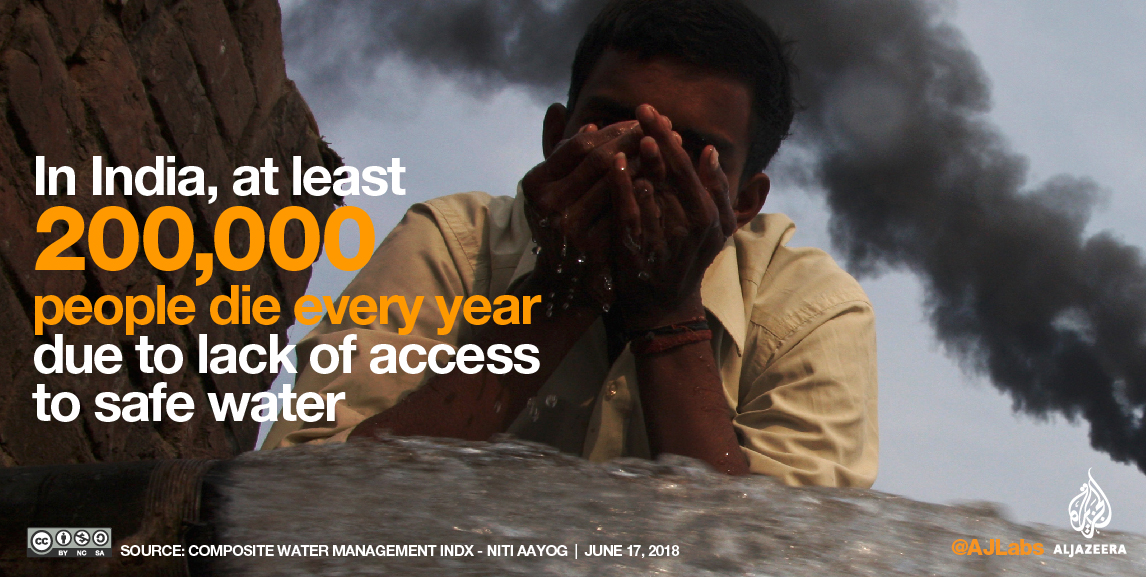India faces ‘worst-ever’ water crisis: report
Alarming study finds about 600 million Indians are facing high to extreme stress over clean water access.

India is facing its worst-ever water crisis, a new report by a government advisory body has warned.
About 600 million Indians are facing high to extreme stress over water, according to the Composite Water Resources Management report by the government’s policy think-tank Niti Aayog this week.
Keep reading
list of 4 itemsPhotos: Heartbreak in Zimbabwe park – Elephants’ desperate hunt for water
Photos: Natural disasters that plagued the world in 2023
‘Everything is dead’: How record drought is wreaking havoc on the Amazon
The comprehensive study on the state of India’s water warned of conflict and other related threats, including food security risks, unless actions are taken to restore water bodies.
“Critical groundwater resources, which account for 40 percent of our water supply, are being depleted at unsustainable rates,” the report said.

Mridula Ramesh, author of an upcoming book on climate change, told Al Jazeera that “groundwater can be used and abused at a very low cost.”
“There are few or no restrictions on groundwater extraction, leading to wasteful water consumption. In agriculture, crop choice that is unsuitable for a given region is one example of this,” Ramesh noted.
We are all going to pay a heavy price when the water runs out. Why not pay a reasonable cost for its proper management to avoid that situation?
She advocates “a notional price for water”.
“After all, we are all going to pay a heavy price when the water runs out. Why not pay a reasonable cost for its proper management to avoid that situation?” she argued.
Many parched cities and villages in India are pushing back their “Day Zero” (when water taps run dry), but barely, warned the new report.
About 40 percent of the population will have no access to clean drinking water by 2030.

More than 20 cities, including New Delhi, Bengaluru and Chennai, will run out of groundwater by 2020, affecting 100 million people, according to the report.
Agricultural baskets, states that are home to 50 percent of the population, are the low performers in the government policy body’s Water Index, that could pose a “significant food security risk” for India.
“What this report says was true 15 years ago, now the situation has worsened. Ninety cities in India do not have enough clean drinking water now to sustain its populace,” Rajendra Singh, a water conservation activist known as India’s “Waterman”, told Al Jazeera.

‘Sustainable conservation
Singh, winner of the 2015 Stockholm Water Prize and who works with local communities in the desert state of Rajasthan, said commercial solutions, such as increasing water cess, are not the answer.
“The rich will still waste water if you increase prices, while the poor won’t be able to afford it. We cannot move towards corporate control of water. The answer lies in sustainable ways of conserving water,” Singh claimed.
Singh successfully revived an ancient water conservation technique by restoring underground reservoirs as water reserve banks.
Depleting groundwater reserves, paired with climatic changes such as rising temperatures, could further exacerbate water scarcity, experts have warned.

Some of the blame lies in uninformed choices.
“Part of this is because of the rising temperature, and the changing rainfall patterns that come with the changing climate,” author Ramesh said.
“Part of it is because of unwise choices we have made in managing our waste and water – dumping our waste in canals, or streets – blocking the drains and reducing the canals for instance. Or building over water bodies,” she added.

Earlier last week, women in Morbi, in the state of Gujarat, smashed and broke water pots to protest against worsening water shortages.
Gujarat, the home state of Prime Minister Narendra Modi, has witnessed tensions over the water allocations for two reservoirs connected by the Narmada river.
In March, the Gujarat state government halted irrigation water from the river and appealed to farmers not to sow crops.
The water crisis could also aggravate political tensions in the region. Eleven Indian states are locked in seven major disputes over river water-sharing.
Scores of people have died in violent protests over the Cauvery river water dispute between southern Indian states Karnataka and Tamil Nadu.
India is also caught up in long-standing disputes with neighbours China, Pakistan and Bangladesh over the sharing of water from rivers that cross national boundaries.
